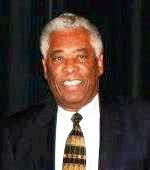The Uniqueness of the
Trans-Cultural Awareness Institute©
Offie C. Wortham, PhD
The difference between this organization and many others is that it does not use the buzzwords "multi-culturalism" or "diversity training." It also does not assume that the major social problem in the world is racism. Of course it acknowledges that racism does exist, but the Institute believes that the larger problem is one where conflicts and misperceptions about life-styles must be examined and discussed.
We propose trans-cultural dialogue in distinction to mere inter-cultural dialogue. This points to the capability of transcending (and, thereby, transforming) one’s own horizon of understanding towards other forms of cultural self-realization, and not merely of relating and comparing abstract contents of one’s own cultural environment to other such environments. The term signifies the fact that our own cultural awareness is shaped by the interaction with other cultures, that it reaches a level beyond its original setup.
This approach, versus one with a Euro centric orientation, is one of dialogue on the cultural, and of partnership on the socio-political level. Based on a concept of culture as "a system of interconnected values, perceptions, and modes of interaction" this approach requires a new doctrine of public education which should, although based on a particular cultural tradition, make understandable the values and world views of other civilizations, doing away with any form of cultural exclusivism, tribalism, or ethnocentrism.
The educational system in any given cultural environment must reach beyond the exclusive interpretation of the collective cultural awareness on the background of that very culture’s specific traditions that, in turn, shaped the very understanding (self-comprehension) of that culture. This has to be transcended towards the inclusion of other (genuinely different) traditions that have been shaped independently of one’s own culture into the cultural understanding of any given community (civilization). We must have an understanding of the other, of that which is different from ourselves. This implies a more profound awareness of our own culture; it allows us to define ourselves more adequately in distinction from the other(s).
The consequences in the field of education are obvious: European curricula should not only include the teaching of Graeco-Roman and Christian traditions but should also convey the knowledge of non-European traditions and religions such as Islam and Buddhism. Total Euro centric ignorace of other cultural environments that have been shaped outside of Europe and the United States has been the main breeding ground of cultural chauvinism and the root cause of imperialist aggression over the centuries up to the present age of a prematurely declared "New World Order."
Trans-Cultural Awareness requires a reorientation of the information and media sector in regard to the stereotyping of other civilizations (the most drastic example being the stereotyping of the Islamic civilization by the West). On the level of international relations, this approach towards cultural self-comprehension requires a new method of cultural diplomacy, abandoning the propaganda-style presentation of one’s own civilization and promoting genuine trans-cultural encounters. The traditional crusader spirit has to be overcome in trans-cultural encounters, and the hegemony of Euro centric worldviews and life-styles in the international media and entertainment sector has to be counterbalanced by the unbiased presentation of other civilizations. A truly multicultural environment should be the goal on the local and global level. One has to get out of the vicious circle of self-affirmation that has characterized the Euro centric approach to cultural encounters for so long, and that has so greatly discredited the Western tradition of Enlightenment.
Each of our events is designed to bring together people to discuss a subject of common interest. By placing individuals in discussion groups with others from differing backgrounds we hope to broaden the perceptions we have of others, and reduce the number of stereotypes we all have of people we normally never socialize with as peers. We have put on similar events in New Jersey, New York and in Atlanta, Georgia.
Trans-Cultural Awareness is not limited to racial or ethnic awareness. This approach can be used to sensitize individuals from different nations, different classes, different age groups (the "Generation Gap"), or between male and female. It would be especially useful for individuals who must work in tense situations with others who are products of an entirely different, and often conflicting, lifestyle or subculture.
Policymakers and planners, government officials, teachers, law enforcement personnel, employers, supervisors and others in important positions of authority and power would greatly benefit from non-threatening encounters between themselves and the recipients of their decisions and actions. Transcending the horizon of one’s own tradition is the precondition for a better understanding of that particular cultural tradition.
For those who are concerned about the future of the human race, a universal dialogue of civilizations is of crucial importance for the future of mankind, because such a dialogue is a basic condition of peace and stability on both the national and the transnational level. As stated by UN Secretary-General Kurt Waldheim in 1974: "No nation, however large or powerful, can escape from the fundamental reality of our interdependence."
